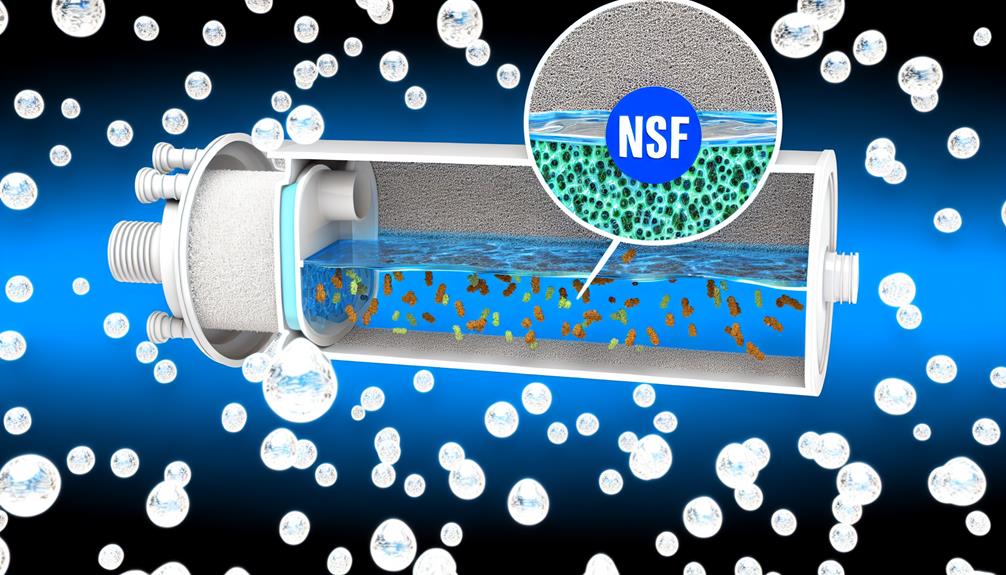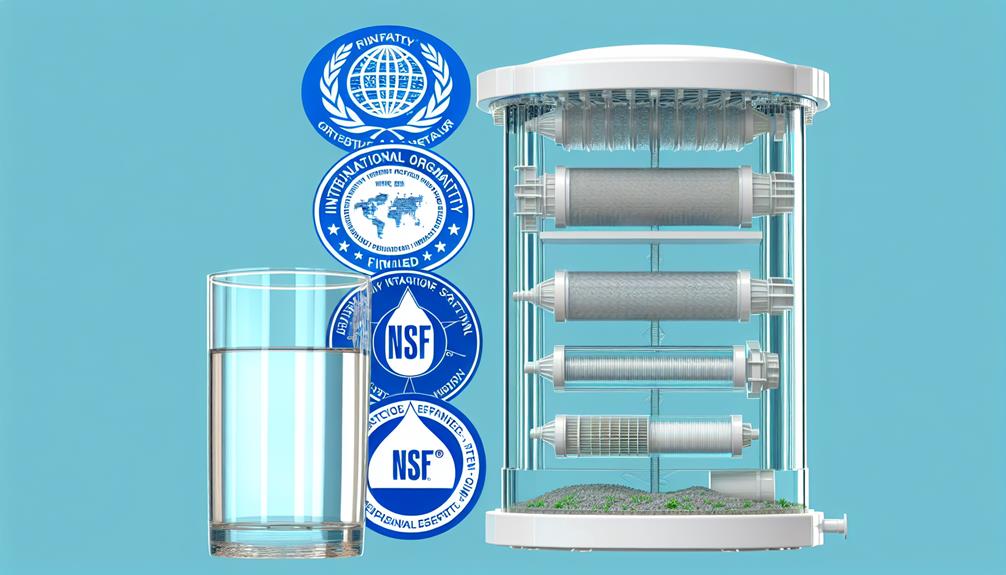While clean water is a hallmark of modern living, the specter of lead contamination looms large, compelling you to consider the safety of your drinking water. As you seek assurance that your family's health isn't at risk, pursuing lead removal certification for filters becomes not just a choice, but a necessity.
Lead's invisibility to the naked eye and its insidious effects on health create a silent urgency, making certified filters your first line of defense. You're probably aware that regulations and standards exist for a reason, but you might not fully appreciate how a simple certification can make a world of difference in filter performance and compliance.
Stick around, and we'll explore how this often-overlooked aspect of water filtration could be the key to not just meeting, but exceeding expectations for purity and safety in your home.
Understanding Lead Risks
Awareness of lead's insidious presence in drinking water is the first line of defense in safeguarding public health against its harmful effects. It's vital to understand that lead contamination can stem from multiple sources, such as aged city water service lines or corroded plumbing fixtures. The World Health Organization has highlighted the urgency by declaring that no level of lead in drinking water is safe.
To effectively reduce lead in drinking water, it's imperative to select water filtration systems that have been rigorously tested and certified to meet NSF/ANSI standards for lead reduction. The certification ensures that the filter can reliably decrease lead concentrations to levels that are deemed non-threatening to health.
Certification Importance
Certification is crucial as it verifies a filter's capacity to effectively remove lead, ensuring compliance with stringent health and safety standards. When you're selecting water filters, it's essential to look for those certified to reduce lead. This certification demonstrates adherence to NSF/ANSI standards, which are recognized benchmarks in drinking water treatment.
As you delve into the technicalities, understand that NSF/ANSI standards aren't just arbitrary markers. They're developed by a public health and safety organization that's committed to protecting consumers. NSF certification guarantees that a water filter has undergone rigorous testing to ensure it can reduce harmful contaminants, including those contaminants that cause negative health effects, like lead.
By choosing a certified filter, you're relying on a product that's been independently verified to perform as claimed. Remember, only certified products have been thoroughly evaluated to confirm their effectiveness in lead removal. And this isn't a one-off check. NSF maintains a daily updated list of certified filters, which you can access through the 'NSF Can Help' section on their website.
In a world where water safety can't be taken for granted, certified filters provide you with the assurance that you're protecting your health and that of those around you.
Filter Performance Standards
When selecting a water filter to safeguard against lead contamination, it's essential to understand the performance standards set by NSF/ANSI, which dictate the reduction of lead from 150 ppb to 10 ppb or less. As you explore your options, you'll encounter NSF/ANSI 53, the benchmark for filters certified to remove lead. This standard ensures that water treatment devices not only reduce lead in drinking water but also minimize other harmful contaminants.
- NSF/ANSI certified filters:
- Secure your family's health: Protect against negative human health effects by significantly reducing lead exposure.
- Assurance in every sip: Trust in a reliable performance for drinking and cooking water, knowing that NSF/ANSI standards are met.
- Comprehensive protection:
- Acid neutralizing systems reduce lead leaching from plumbing.
- Regular maintenance preserves filter efficacy.
- Certified devices may lessen various other contaminants.
Regulatory Compliance Benefits
By using water filters certified for lead removal, you ensure compliance with stringent regulatory standards, safeguarding the health of consumers and upholding legal requirements. Achieving certification, particularly under NSF/ANSI 53 for drinking water treatment units, signifies that your water filter has undergone rigorous testing and meets the established criteria for lead reduction. This adherence to a trusted water standard not only aligns with regulatory compliance but also elevates the credibility of your product in the marketplace.
When you opt for certified filters, you're affirming your commitment to public health. The certification process involves detailed evaluations to confirm that your water filter consistently reduces lead content to levels deemed safe by public health authorities. It's a proactive step that demonstrates due diligence and mitigates the risk of non-compliance with evolving regulations.
Moreover, by ensuring your filters are NSF/ANSI certified, you're providing consumers with the confidence that they're using a product validated by an independent, accredited organization. This assurance is vital for maintaining consumer trust and can be influential in their purchasing decisions.
In essence, regulatory compliance benefits extend beyond mere adherence to the law; they play a pivotal role in protecting public health and reinforcing the integrity of your brand.
Consumer Trust and Safety
Ensuring that your water filter carries NSF certification can significantly bolster consumer trust and guarantee the safety of the water they drink. Lead removal certification isn't just a badge—it's your commitment to public health and a promise to reduce harmful contaminants that affect families every day. By choosing filters certified to NSF/ANSI 53, you're aligning with standards set forth by a respected health organization, and you're delivering more than just clean water; you're delivering peace of mind.
- NSF/ANSI 53 Lead Removal Certification:
- Confidence for Consumers:
- Assurance that drinking water is free from lead
- Trust in a filter that meets rigorous testing
- Belief in the expertise behind water treatment systems
- Commitment to Safety:
- Dedication to upholding public health standards
- The promise to minimize health risks associated with lead
- Vigilance in regular product evaluations and updates
- Proof of Performance:
- Visible proof that your filter reduces harmful contaminants
- Certified effectiveness listed on NSF's updated registry
- Transparency in the filter's capabilities and maintenance
When you provide NSF-certified filters, you're not just selling a product; you're reinforcing consumer trust and safety. This commitment to excellence ensures that every sip of water is a testament to your dedication to their well-being.

